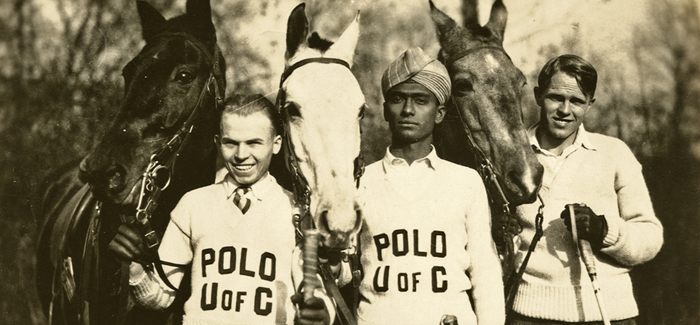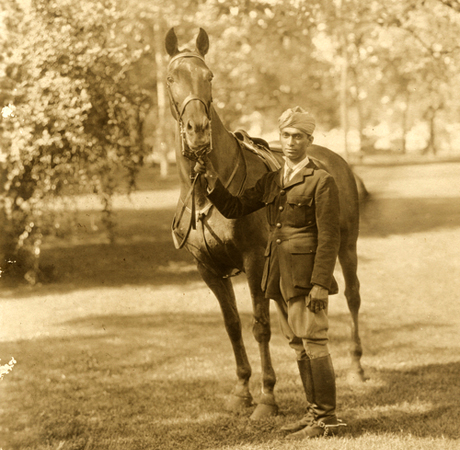
His name was as formidable as the list of degrees he amassed at the University: Chandra Dharma Sena Gooneratne, PhB’27, AM’28, PhD’33.
Captured here with the UChicago polo team, he also appears—with a horse—in a 1926 archival photo as a member of the campus Army ROTC.

Dashing and serious, Goonerate came to the University to study comparative religion. His graduate work examined the status of caste and development of political consciousness in modern India. As a student he spoke on local radio shows and gave public talks about current events and culture in India—a nation, he reminded his audience, containing “one-fifth of the human race.”
In summer 1928 Gooneratne even lectured on the Chautauqua circuit, visiting small towns in Iowa, Minnesota, Wisconsin, and Michigan. A publicity flier noted his goal: “to bring to Americans a true idea of India as she is today; as she has been in the past; as she hopes to be in the future.” The book Desi Divas mentions several other South Asians who made similar tours.
In some ways, Gooneratne was a mystery. While a 1928 news clipping calls him the “member of an influential Brahmin family in India,” another source says he was born in Ceylon (now Sri Lanka). His dissertation, exhumed from the Mansueto Library, contains no mention of his family background or academic advisers—though he likely studied with comparative religion chair Eustace Haydon, a founder of the Humanist movement. After graduating he may have worked for the US Ambassador to Ceylon, who thanks a “Dr. C. Gooneratne of my Embassy staff” in a 1956 memoir.
Inspired by the radicalism of Mahatma Gandhi and the poetry of Rabindranath Tagore, the young Gooneratne called for an end to British rule 20 years before Indian independence. “No nation ever rose to greatness by allotting to certain of its members fixed positions in the social scheme,” he wrote in his master’s thesis. “‘Educate, agitate, organize’ and fight against social and political injustice are the watchwords of modern India.”
